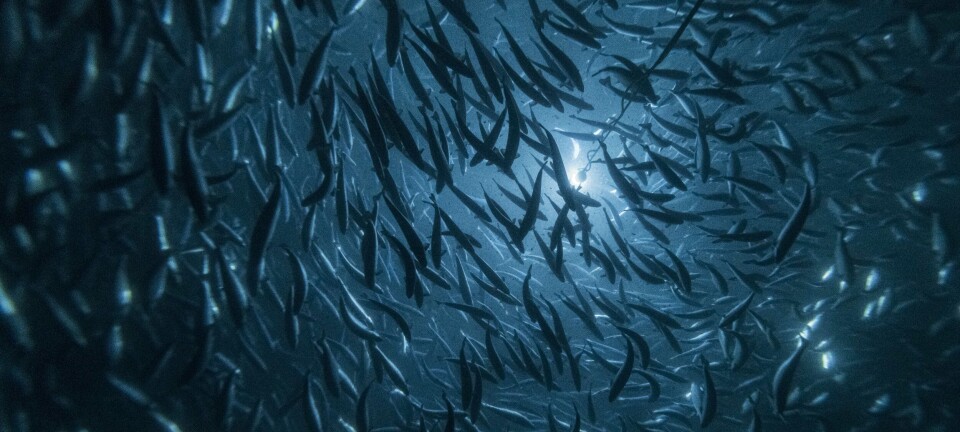LandbasedAQ.com
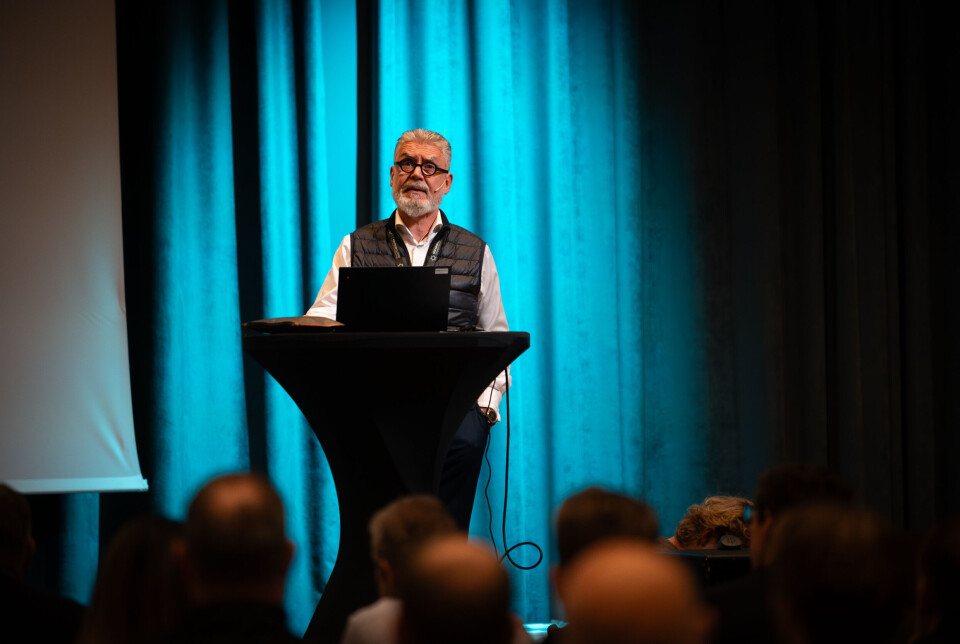
How to win at land-based fish farming - by someone who lost
Harald Fiksdal wanted to build a large land-based aquaculture facility outside Bergen, Norway. The Salmo Terra project collapsed, and the company went bankrupt with debts of NOK 32 million. At the Morefish conference, Fiksdal talked about what went wrong.
Today he works as a project manager for construction client consultancy at Advansia, but until August last year, Harald Fiksdal was the general manager of the land-based project Salmo Terra.
"I think it's important to tell the honest story about how it is to stumble, why we stumbled, what I would have done differently if we did it all today, and what I believe is right to focus on and prioritise, so others don't stumble like we did," Fiksdal told the participants at the Morefish conference in Trondheim.
From 2017 to 2023
It all started in 2017 when Fiskdal established the Bergen-based company Salmo Terra together with Svein Egil Steen and Kai Andre Stæger-Holst. The following year, they received permission to build one of Northern Europe's largest land-based aquaculture facilities, located in Øygarden.
They were granted permission to produce 8,000 tonnes of salmon and trout, with 2,700 tonnes in the first construction phase. The original plan was to have fish in the facility by the end of 2019.
During the spring of 2024, the company's funds ran out, creditors demanded their due, and the end result was a bankruptcy filing on August 2 last year.
Sharing to help others
"Some might find it interesting to hear about someone who fell, but the most important thing for me is that we share our experiences with the industry, so that as many as possible can succeed. By doing so, we help manage risk together and hopefully build a positive reputation for land-based aquaculture," said Fiksdal.
He pointed out that it's natural to stumble a bit in a large project, but the important thing is to regain balance.
"Stumbling can mean that things take longer, and it often leads to increased costs. And if you stumble so hard that you fall, it affects more than just yourself."
He believes it is therefore important to know what can cause imbalance and what tools are available to help regain balance.
"I am of the conviction that there is a high likelihood of stumbling if you try to move very quickly in a completely new way, or if you think you can deliver optimally in a field that is not your core competence. Therefore, the team you bring with you should be properly composed, and it must be in place at the right time," he said.
Got most things in place
Salmo Terra started in 2017.
"I did it together with some good colleagues from the oil industry, because we wanted to convert to something we perceived as much more useful. We wanted to modernise the aquaculture industry by building and operating a land-based salmon farm. We had long experience in using and running advanced technology and good knowledge of processing plants and were confident that we had much to contribute," he said.
They eventually found a plot on the west side of Øygarden outside Bergen.
"We built a solid business plan and we would concentrate only on the farming of fish. Otherwise, we would utilise the existing infrastructure in Western Norway."
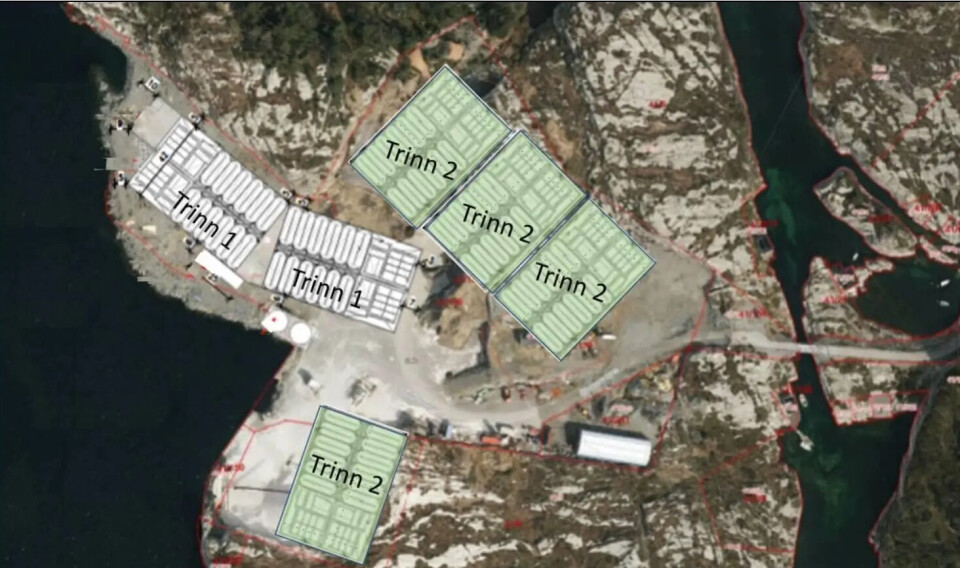
The strategy was to have a very small organisation.
"We would have a very simple team consisting of people with technical competence, financial competence, and board members with aquaculture expertise."
And then they connected with contractors, including recirculating aquaculture systems (RAS) experts, through pure supplier agreements.
"They were all competent and good partners, but they never fully became part of our project team."
Salmo Terra progressed far in the process and received the permit it applied for, namely 8,000 tonnes per year. The company got the plot rezoned, completed the facility design, and secured an energy agreement. It also started the development and planning of the site, and the groundwork for laying pipes.
"And not least, and most importantly; we secured financing. It was a financing contract for total financing for the first construction phase, which was 2,600 tonnes."
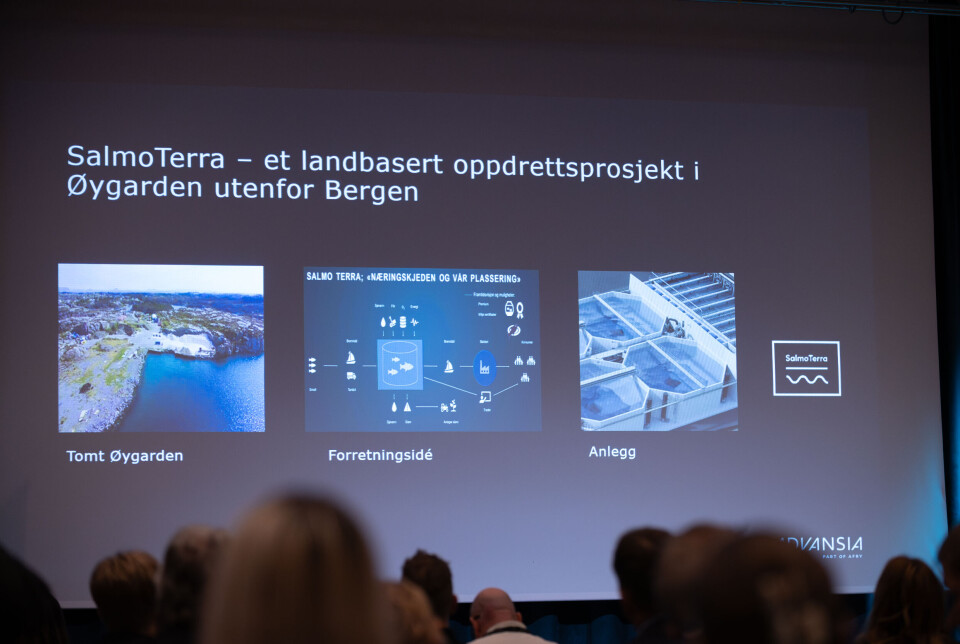
That's why it went wrong
So why did Salmo Terra stumble anyway, and so severely that it fell completely?
Fiksdal admitted that this is still a bit painful to talk about.
"The capex (capital expenditure) grew during the project, the timeline cracked, but the crucial thing was that the financing agreement that was entered into was not delivered. It was a contract that had promised to finance the first phase. When that became a reality, we were out of time. We were out of financial muscle and simply out of strength. We had pushed too many heavy stones uphill, all alone, without having enough strength in our internal team. We had worn ourselves out by trying to lift alone in what was not our core competence. Thus, we were unable to regain balance," he said.
Based on that experience, Fiksdal said he takes with him especially one lesson he considers the most important to reduce the chance of stumbling. And if you do stumble, to at least make sure you don't fall completely.
"It is a simple, yet extremely important experience. You have to stand in front of the mirror and ask yourself: what is your own core competence in this? The earlier you do it, the better," he believes.
Assess your abilities
"It's about focusing on the journey to how you will acquire the competence to operate a facility that is crucial. And once you have that in place, it's necessary to ask if there is someone who has walked the path you are going to take, before you. Is there someone who can drive the road towards the goal better than you can achieve alone? Is there someone who can quality assure you and your subcontractors' thoughts and strategies? I'm not thinking about individual components like the feeding system or pumps, I'm thinking about having the competence to be able to stitch it all together in an optimal way. Being the conductor and coach who has previously assembled this type of complex facility."
He believes the key question must be whether it is the process of getting the facility in place, or whether it is the actual operation of the facilities that is your core competence.
Can others answer the question?
"I think there are many projects today where the builders who are in the same position as us cannot answer positively to that question," he said.
Once you have looked in the mirror, the next takeaway according to Fiksdal is that you must understand where you should invest, so you can reach your goal as you envisioned it.
"At Salmo Terra, we showed where we were going and we knew what we were good at, namely running a business and operating advanced processing plants in a reliable manner, as well as operating new technology. But we were definitely not good enough at asking ourselves what we were not best at. Only in the recognition of that, do you understand where there is a great opportunity to stumble, and where it is absolutely necessary to implement countermeasures."
'What he needs now is medicine'
"During my journey, I have learned, and not least experienced, that if you are alone with a minimal team and try to optimise all sub-projects, it can become a journey that makes you seasick. And being seasick is a condition that really sets you up for stumbling. And if you are seasick, you need medicine. You need some strength pills," said Fiksdal.
He illustrated this by showing the conference participants jars of pills of different colours.
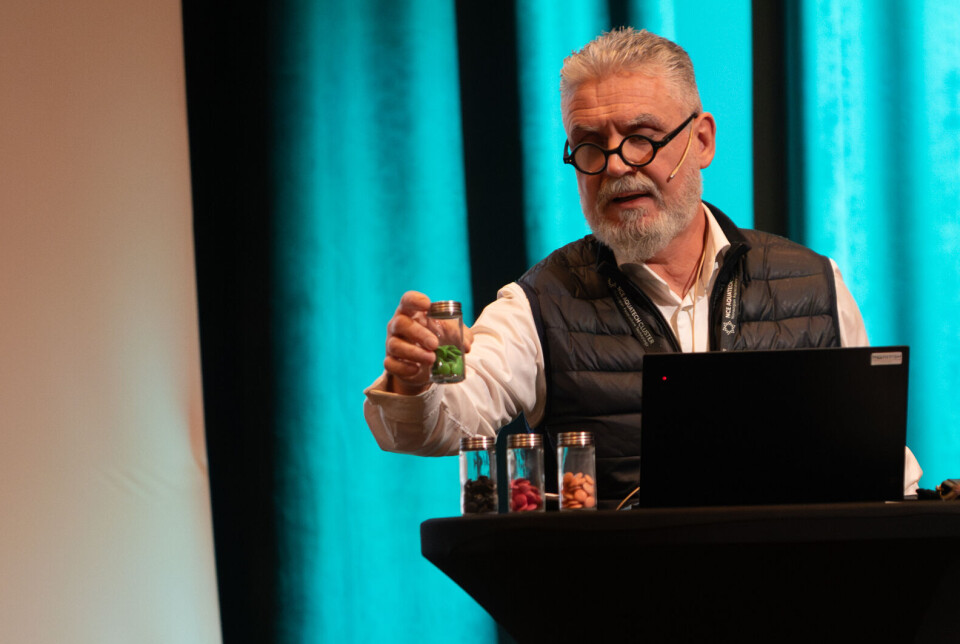
"You need some of the red ones. The professional project management strength pills. Those that have built-in experience, have been tested, and proven effective and competent in the realisation of construction projects.
"You need the black contract and negotiation pills. They ensure and know how to secure exactly the right type of contract with the right conditions for the construction project.
"You need the orange construction management pills. They are powerful, have an authoritative taste, and are strong enough to ensure that the project follows the given schedule.
"And then you need perhaps the most important pills, the green ones. These are the realism pills. As a project manager, you will need someone who can splash cold water on you, who dares to ask the difficult questions, and who ensures that you are corrected before you stumble - and certainly before you stumble so violently that you fall.
"It is important that this medicine, consisting of all these different strength pills, hangs together well so that there is agreement. It must become a cohesive effective process, guided by competent coaches, who can deliver the strength pills in an optimised way as an integrated part of your team."
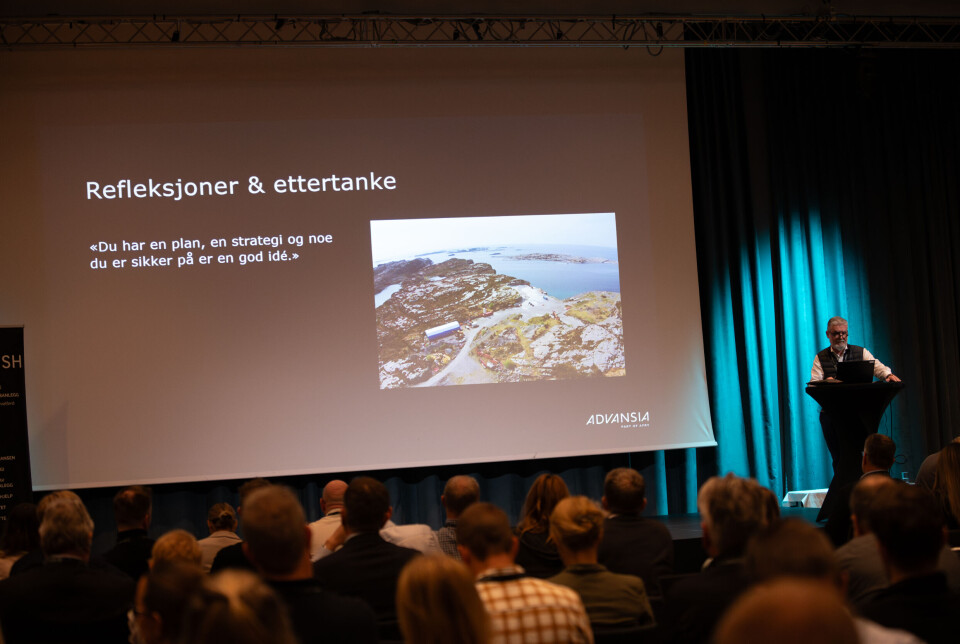
When Fiksdal now conducts his self-examination in retrospect, the question arises whether he brought in the right coach, the right team, and the right support. And would it have saved the specific project with Salmo Terra?
"To be completely honest, I don't know. The final nail in the coffin was that the financial institution we had a contract with did not deliver according to the agreement. I believe that if we had the right coaching team with us along the way, it would have prevented some steps that wore us out. We would have been told earlier that we were about to fall, and maybe managed to stay on our feet," he said.
This is about reputation, that those who invest must know that the money is secured and will yield returns
He believes it is crucial to share this lesson because he sees it as important that planned new establishments in land-based aquaculture manage to stay on their feet.
"This is about reputation, that those who invest must know that the money is secured and will yield returns."
Get help in time
He believes there is effective balance support and that it must be prioritised.
"It is important to bring in support for the management early in the project. The overall 'coaching team' must have overarching experience and core competence to lead the project to completion. And perhaps that lesson is the main reason why I am with Advansia today," he said
He is convinced that if good project management is brought in early in the projects, more projects will survive.
"Then more of us will manage to reach the top of the ladder without stumbling and falling down again all the time," he concluded.




















